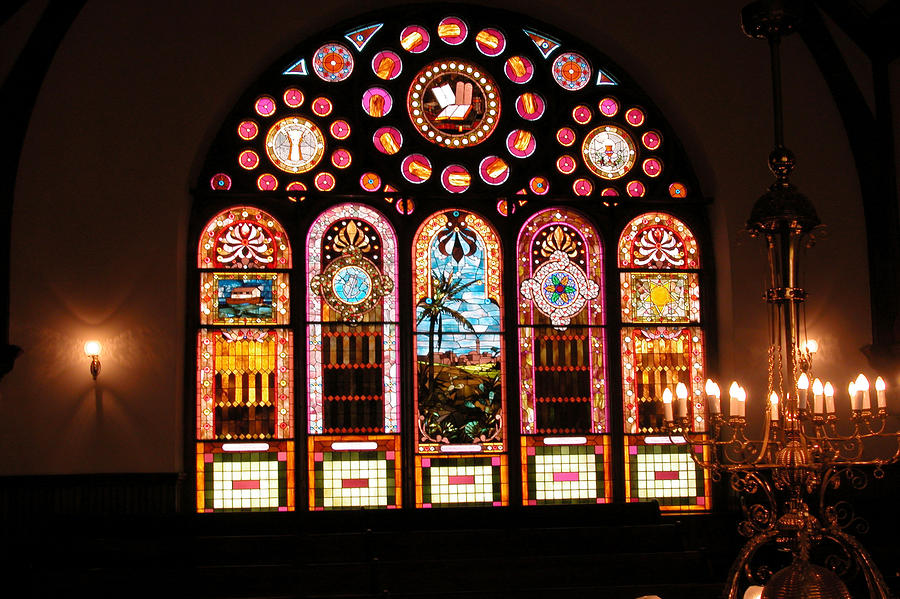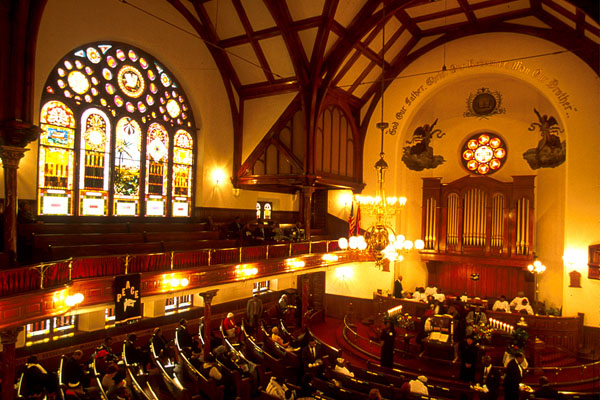
Mother Bethel African Methodist Episcopal Church. Construction of Mother Bethel African Methodist Episcopal Church in Philadelphia, shown in this 1804 engraving, was completed in 1805. It replaced the original structure, a renovated blacksmith shop in which the church was founded by Richard Allen in 1794. [ The Library Company of Philadelphia]

Bishop Richard Allen: “If you deny us your name, you cannot seal up the scriptures from us, and deny us a name in heaven. We believe heaven is open to all who worship in spirit and truth.” —Richard Allen, 1794
Our Own Congregation: The African Methodist Episcopal Church

Bishop Richard Allen: “If you deny us your name, you cannot seal up the scriptures from us, and deny us a name in heaven. We believe heaven is open to all who worship in spirit and truth.” —Richard Allen, 1794
Our Own Congregation: The African Methodist Episcopal Church
In 1794, black Christians in Philadelphia began to form their own churches. These congregations began as the result of an incident at the predominantly white St. George's Methodist Episcopal Church, when ushers pulled black worshippers from their knees during prayer. The incident incited the black congregants to walk out of the church. Some of those black congregants decided to form an Episcopal congregation, which they called St. Thomas African Episcopal Church. Its leader, Absalom Jones, became the first black Episcopal pastor in the United States.

Located in the Society Hill neighborhood of Historic Philadelphia, Mother Bethel A.M.E Church sits on the oldest parcel of land continuously owned by African-Americans and includes a former church structure that doubled as a hostel for escaped enslaved Africans traveling the Underground Railroad. (Photo by R. Kennedy for GPTMC)
The rest of the black Philadelphia Methodists, however, found themselves in a bind as they struggled to renegotiate the paternal relationship they had heretofore enjoyed with the white Methodist elders. In an attempt to gain autonomy, a black parishioner named Richard Allen converted a blacksmith's shop into a Methodist church. Bethel Church was dedicated on July 29, 1794 - just twelve days after Jones' Episcopal congregation. The city's presiding Methodist elder, however, wouldn't recognize them. Since Allen wasn't ordained, and the church had no money, they relied on a series of visiting white preachers. In 1799, Allen became a deacon. Although he was finally able to pastor Bethel himself, he remained under the authority of white presiding elders, who had varying levels of tolerance for the idea of a black man running a Methodist-affiliated church.

Allen's leadership extended beyond the walls of the church. He founded the African Masonic Lodge and organized societies to promote education for children of African descent. He vigorously opposed the program of resettling free blacks in Africa. In 1830, shortly before his death, Allen presided over the first Convention of the Colored Men of the United States. Twenty-seven elected delegates from seven states attended. The convention, held at Bethel AME Church, was a harbinger of such organizations as the NAACP and the Urban League.
In the history books, Allen should go down as both the father of the AME Church, and the first national black leader.

An Outlawed Church --When white Methodists discovered that blacks in South Carolina were using their resources to buy the freedom of the enslaved, they closed down the church. This set off a chain of events that led to Denmark Vesey's rebellion. (source: PBS)


No comments:
Post a Comment